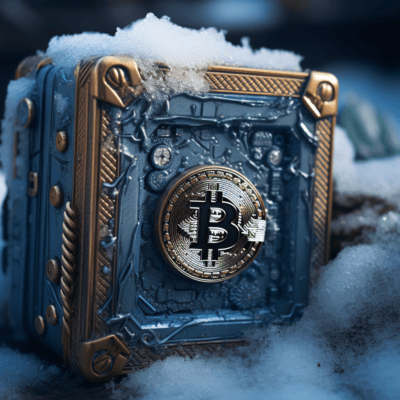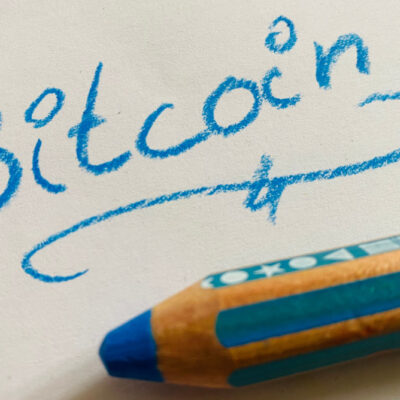
Everything you hear these days about bitcoin is related to price, and while price is important to the case for bitcoin adoption, it’s not the only reason to own bitcoin. There are actually many benefits of owning bitcoin beyond preserving and increasing the purchasing power of your savings.
But let’s start at the beginning.
Bitcoin has a price because it is desired and scarce (supply/demand), and its desired because it does something useful. Its main function is to store and transfer value.
What is money, but an accounting system of who owes who what? Money itself doesn’t have value, but it gives you an entry on kind of societal ledger that says, “This stuff is worth goods and services in the future”.
You may have heard that bitcoin isn’t backed by anything… and that’s actually a good thing. Money isn’t backed by anything. Money is money because it contains all the properties of money:
- Property 1: portable
- Property 2: divisible
- Property 3: durable
- Property 4: recognizable
- Property 5: fungible
- Property 6: scarce
As a money, bitcoin allows you to store and transfer value. Because of its 21 million coin limit and the fact that its natively digital, it’s able to store and transfer value more efficiently than another other type of money.
In addition to those basic functions, because of the nature of how bitcoin works, there are some additional benefits to owning bitcoin beyond the store and transfer of value.
7 Unique Benefits of Owning Bitcoin
1. Money Without Counterparty Risk
Most people don’t really understand what money is, so the idea of having money without counterparty risk is a completely new concept. Honestly, it took me a while to understand this concept myself. It’s definitely one of the most under appreciated aspects of bitcoin because it’s such a difficult concept to grasp. Let’s jump in.
Right now, the money you have in your bank account isn’t actually there.
Sounds weird, but it’s true.
Sure, you can go take some money out of the bank, but if everyone tried to take their money out of the bank at the same time, the bank would collapse. We’ve seen bank runs as recent as 2023, with the collapse of Silicone Valley Bank, and there were many more that happened in 2008.
How Banks Work
How banks works is counterintuitive in that when you deposit money into the bank it’s a “liability”, and when you get a loan from a bank it’s an “asset”. Most people would consider the opposite to be true, but banks look at things differently. When you deposit money into the bank, they owe you money, so that’s considered a liability. When you get a loan from the bank, you owe them money, so that’s considered an asset.
So the bank is taking your deposit, and lending it out to someone else in order to make money.
In order for you to get all your money back the bank has to manage their investments properly. That’s counterparty risk. Your fiat money existing and being available to withdraw as cash is dependent on someone else doing their job.
With bitcoin, there is no counterparty risk. Your bitcoin exists whether or not a loan is paid back. Similar a physical commodity like gold, it exists or it doesn’t. You have it, or you don’t. There is no 3rd party dependency.
When a bank collapses, its depositors are simply wiped out unless they are bailed out by the government or the Federal Reserve. They come up with the money through special programs, loans, and other complicated financial instruments, but that doesn’t change the fact that the money simply wasn’t there, and now they need to replace it.
With bitcoin, the money is there. It’s money without counterparty risk.
Related Content
2. Diversification
Bitcoin is a new asset class. It’s never existed before and has only been around for a little over 10 years now, so most people do not own it as part of their investment portfolio.
Though during the first decade of Bitcoin’s existence, you could make a strong case that it was too speculative to be part of a conservative investment strategy, at this point, it’s pretty clear that Bitcoin is here to stay. The network works. It has enthusiastic users. There are billions of dollars of infrastructure, software, and services being built around the world to accommodate Bitcoin users and plan for the future.
Nobody can predict what will happen to the price, but Bitcoin will still be here in 10, 20, 30, years and beyond.
On top of that, Bitcoin is a unique asset, unlike any other available right now, and unlike any other that’s ever existed. It’s a limited resource. It’s a global network. It’s available to the rich and the poor equally. It’s natively digital money. Whatever else you want to say about it, it’s not unreasonable to believe that every investor should have some exposure to Bitcoin in their portfolio.
Even A Small Amount Of Bitcoin Can Change Your Portfolio Returns
The question is what type of exposure and how much. For most people, even as little as 1% of their portfolio can make a huge difference, but size your investment bitcoin according to your risk tolerance.
One of my favorite quotes to think about in the Bitcoin space says something like, “The amount of Bitcoin you own tends to correlate with your understanding of the network.”.
What that says to me is to start with a small allocation, learn about Bitcoin, then buy more if you think it’s a good idea. As you learn about the asset, your strategy can change to whatever you feel comfortable with. Invest whatever doesn’t keep you up at night, and what you won’t panic sell when the Bitcoin price dumps 50% in two weeks.
Bitcoin is pretty complicated, so you may not turn out like me and study it for years. That’s OK. You don’t have to be “all in”. A surface-level understanding and a small allocation may be right for you. You don’t have to be a ‘bitcoiner” to benefit from owning some bitcoin.
3. Participation In A Never-Seen-Before Event
Bitcoin is something that’s never existed before. It’s is a global event, with millions of participants. Bitcoin is permissionless, peer-2-peer money that cannot be controlled or debased by goverments and corporations. Even if you don’t care about the investment side of things, it’s undeniable that Bitcoin is a unique technology that is changing how people think about money.
The invention of Bitcoin has been compared to proto money. Its implications of monetary freedom could be the spark leading to the separation of money and state, similar to how the invention of the Gutenberg printing press led to the separation of church and state. The Bitcoin reformation may be the start of the Bitcoin renaissance. It’s a once-in-human-history event like the invention of the number zero.
Isn’t it cool that you can own a piece of this historical event?
It doesn’t take a whole lot of effort to get started. You just sign up for an exchange, just like you’re buying a stock, and you can be a part of the Bitcoin revolution. Do you really want to sit on the sidelines on this one?
You don’t have to become the next Bitcoin millionaire to be a part of this cultural shift. You just have to not do nothing.
4. Studying Technology, Money, Society, & History
For me, personally, this is one of the best reasons to own Bitcoin. It’s just plain cool and interesting to learn about the history of money and tinkering with electronics. If you read about Bitcoin long enough, you’ll come across people talking about “going down the rabbit hole”, and it’s pretty true to the experience of learning everything you can about Bitcoin.
Once you learn the basics of how Bitcoin works, the next steps really depend on your personality and what you find interesting. You might dig into the history of money, why we used shells or salt at different points in time, and how the world converged on gold as a monetary standard for thousands of years.
Then you might wonder how we came off the gold standard, when the Federal Reserve was created, and what exactly is The Petrodollar or The Eurodollar?
Or maybe you want to buy a used ASIC and start mining Bitcoin at home. You could turn it into a space heater or a pool heater. You could use the waste heat for your greenhouse. You could mine with some DIY solar panels.
The rabbit hole continues to go deeper.
5. Bug Out Money
Critics of Bitcoin will ask, “How are you going to use Bitcoin if the internet goes down?”. I think if the internet goes down globally, we’ll be in a lot deeper shit than just not being able to access our money. Critical systems across the globe rely on electricity, networks, and the internet, so when I say, “bug out money”, I’m not talking about total global meltdown and nuclear armageddon.
A bug out situation probably wouldn’t happen in Western, developed nations, but there are still situations you may find yourself in where you need emergency cash and can’t depend on banks. One time I was traveling in Turkey and the ATM ate my debit card. This was back in 2006, so I didn’t have bitcoin back then, but it sure would have been nice to have some bitcoin on a mobile wallet.
Outside of the US, Canada, and Wester Europe, there are still 100+ other countries (more than half of the world) that live in developing nations with unstable political situations. Turkey and Venezuela are currently experiencing hyperinflation. There are bank runs in Lebanon. China enforces capital controls. There are corrupt politicians in Eastern Europe and paramilitary groups in Latin America.
Globally, there are many reasons why you’d want to have some secret stash of money which is not reliant on a bank to access, and is still able to be accessed digitally.
Again – you don’t have to be “all in” on Bitcoin to benefit from it. It’s not unreasonable to have a little bit of Bitcoin stored in a hardware wallet brain wallet just in case.
6. Membership In An Exclusive Club
It’s hard to know exactly how many people in the world own Bitcoin. It’s somewhere in the tens of millions. Regardless, it’s a pretty small portion of the global population.
Of that portion of people, there’s an even smaller niche who have some level of understanding of how the network works. From that group, there’s an even more narrow subset who use Bitcoin daily. You can choose your own adventure of how deep you want to go down the bitcoin rabbit hole, but wherever you end up, you’re in a pretty exclusive group of people who are interested in and interact with Bitcoin.
I think it’s pretty cool to belong to a niche group of enthusiastic, positive, hard-working people from around the globe who may have little in common in terms of education, ethnicity, or culture, but who all decided to congregate on this concept of “magic internet money”.
I don’t know a single person in meatspace who’s really into “the Bitcoin thing”, but I feel a kinship with millions of Bitcoiners across the globe who share my passion.
7. Peace of Mind
Not a lot of people will associate the high volatility of Bitcoin’s price action with peace of mind, but hear me out.
When I hold Bitcoin, I’m holding something of which I have true ownership. No government can make more of it. Nobody can take it from me. Nobody can tell me where I can, or cannot send it. I can take it with me no matter where I go in the world. I can send it to anyone, at any hour, any day of the week.
I don’t have to follow quarterly reports (stocks). I don’t have renters that can mess it up (rentals). I don’t have to pay taxes to own it (land). I don’t have to worry about what my bank’s investment portfolio is doing while the Fed pumps up interest rates.
All I need to do is to secure my seed phrase and add to my stack periodically!
Does Price Matter For Bitcoin?
I used to be a believe that price didn’t matter for bitcoin because it performed all these various other functions, but I’ve since changed my mind. In fact, price does matter, and it matters a lot. Price matters because it proves that bitcoin is working as good money.
If the price of bitcoin would continually drop over time, then it would cease to be a good way to store and transfer value. As a result, it would also no longer perform most of these ancillary benefits. It would no longer be good for bug out money or money without counterparty risk. It would no longer be good for investment diversification, and no longer offer peace of mind for long term savings.
So yes, price does matter, and if you own some bitcoin, then you’re betting that more people will come to the realization that bitcoin is good money. You stake your claim by owning some bitcoin, and wait for everyone else to figure it out.
Frequently Asked Questions
Is It A Good Idea To Own Some Bitcoin?
Yes, it’s a good idea to have at least some bitcoin. How much you own should depend on your investing goals and knowledge of the asset, but bitcoin is an asset that cannot be ignored in an modern savings portfolio.
What Are The Top 3 Benefits Of Owning Bitcoin?
The top 3 benefits of owning bitcoin are 1) preservation of purchasing power, 2) fast settlement of digital payments, and 3) secure self custody of digital money
What Are The Advantages And Disadvantages Of Owning Bitcoin?
The main advantage of owning bitcoin is ownership in a type of money with a verifiable limited supply that is not controlled by a 3rd party. The main disadvantage of bitcoin is that you have to learn some new and unfamiliar skills to use it properly such as setting up a hardware wallet and learning how to secure your private keys (seed phrase).


















 Is It Too Late To Buy Bitcoin?
Is It Too Late To Buy Bitcoin?
Leave a Reply